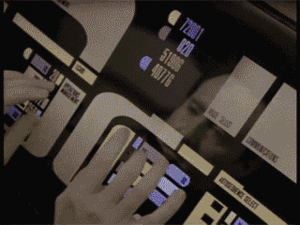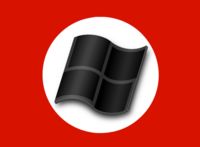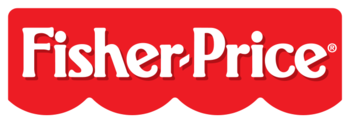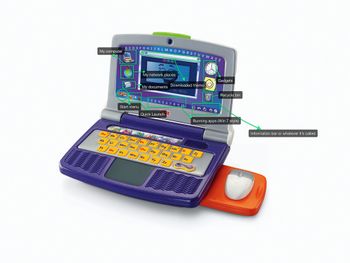Microsoft Windows
| Microsoft Windows | |
The REAL Microsoft Windows logo | |
| OS family | Windows |
| Kernel Type | PopCorn |
| Latest release | Windows 9/11 |
| lead developing Noob | Microsoft |
| Company/developer | Microsoft Dumbaration |
| Source model | Stinky Dinosaurs |
| Available language | American English, British English, Canadian English, French English, German English, Ukrainian English, Gibberish, Cockney, LOLSpeak, Mumble, Nonsense l33t |
| Architectures Supported | Officially confirmed to work correctly on i386, X86-64, ARM, IA64 (Server Only) – it crashes on all of them. Undesired productivity boost when run under VirtualBox on Ubuntu. |
“People liked NASCAR because the constant crashes made it exciting, and this gave me an idea ...”
– Bill Gates on Microsoft Windon't BC
Microsoft Windows, also known as "MacOSn't", or simply "Windows", is the collective name for a series of failures that began in 1983 as a means of reversing the stagnation of the computer hardware market. Copying features from other competing platforms, Windows began as an add-on piece of bloated code latched to the Microsoft Dick Operating System (or "MS-DOS"), but a series turnings of event eventually allowed Windows saw the opportunity to dominate the desktop computer platform and become one of the most popular broken software products of all times.
History
In the year 1981, Microsoft and IBM took the first steps of a relationship that would eventually dominate the personal computer industry. The marriage of Microsoft's virtually bulletproof MS-DOS with IBM's premium hardware was an instant success, and soon gave birth to a host of clone manufacturers who later became industry giants in their own right: Zenith, Heathkit, and Tandy, to name a few. Unfortunately, the explosive growth had the side effect of completely saturating the slowly emerging market. While plenty of satisfied customers were happily number crunching with VisiCalc, many manufacturers including IBM itself were left with mountains of unsold inventory. It was until Rowland Hanson, the head of marketing at Microsoft, who inadvertently hit upon the answer when he pondered aloud at an executive meeting:
| “ | It's too bad we couldn’t make people so irritated that they’d throw their computers out the window. It’d be their own fault, and they'd have to buy a new unit complete with software once they came back to their senses. | ” |
This view was vocally supported by then-business manager Steve Ballmer, who observed:
| “ | Just because we can build a computer that can run for a hundred years doesn’t mean we should. I mean, look! It almost killed the light bulb industry! | ” |
Without so much as another word spoken, it was understood by the whole room that Microsoft would begin the process of systematically removing all the improvements it had made to QDOS, the "Quick and Dirty Operating system" it had purchased from Seattle Computer Products in 1980, and proceeded to initiate the development of a new software product without the involvement of IBM. The then-CEO William Henry Gate III argued:
| “ | And the name? Well, why not "Windows"? Let’s capitalize on peoples’ urges to throw their computers out the window, shall we? | ” |
Early on, there were a number of critics who suggested that the name "Windows" was a reference to the product's fragility. Technology writer Dick Hertz observed:
| “ | I mean, it’s obvious, isn’t it? Like a window, it seems perfectly clear and simple to use, but it crashes with the slightest pressure, or sometimes breaks inexplicably. | ” |
This speculation was largely curbed when Mr. Hertz was found stabbed, burned, electrocuted, strangled, shot, and floating in the East River. Gates refused to comment directly to the press about the incident, but through his press secretary he stated that the death appeared "accidental".
Culture shock

Tearing a page directly out of the Steve Jobs' Book of Corporate Culture Creation – or perhaps it was the Jim Jones' one, no matter – Bill Gates printed up a scores of T-shirts emblazoned with the slogan "style, not substance" and set his minions to work. Their mission, if they chose to accept it, was to dial up the eye-candy while systematically rebugging the software infrastructure. It was a punishing endeavour: writing bad software is easy, but writing software that runs like a gazelle but occasionally trips and falls and loses its memory, or collides in spectacular fashion with some unseen predator who devours it whole, lashes to limbs proved to be extremely difficult. Early efforts on test subjects also yielded poor results, with participants eager to throw their computer out of the nearest non-ground-floor opening but reluctant to visit ComputerLand for a replacement.
The test code was subjected to ongoing in-house peer reviews – "VFI", or "Vote For Inclusion" – with programmers choosing the bugs they liked best. Unexpectedly, it was not always the most clever or best crafted coding that drew the most votes. Often, innocuous bits of writing that struck blindside by delivering an unforeseen playload walked hand-in-hand with obviously chaotic monsters of destructive programming, and with stupidly crafted pieces of clumsy kludge following in tow. As it turned out, this carefully selected blend of predictable error and random terror developed into something akin to the corporate secret sauce. By allowing test subjects to have an occasionally pleasant experience (provided they took certain steps to avoid known pitfalls), they developed an increasing tolerance to the built-in mix of random hardware and software fault messages, and at times even blamed their own stupidity for the crash. Before the Environmental Protection Agency was able to substantiate their half-baked conspiracy theory about some causal link between Microsoft and the sharp increase in the volume of silicon waste accumulating in municipal landfills, people began to quit throwing their computers away and instead looked to Microsoft for answers. The name Windows was retained for marketing reasons, but also to remind programmers of the development imperative: make it look clear and easy to use, but easily breakable.
IBM, on the other hand, began their downward spiral into OS/2 and was eventual taken over by the Chinese. Bill has screwed people over before, as whatshisname from Seattle Computer Products insists; although he is currently under a legally-binding non-disclosure agreement to not divulge any further related details.
Marketing
Marketing Windows may seem pointless, since it is not what one pays for and has the right to receive. Even then, it is simply nuances.
- Fetish marketing. People who used to go into San Francisco bathhouses, put a ball gag in their mouths, cover their heads in a hood, bend over a table, put a can of Crisco on their butt, handcuff their hands behind their back, and wait to feel who came in, were left high and dry for a while in the 1980s, until they found something better — surfing with Microsoft Internet Explorer! After dozens of years of development, Microsoft has managed to make a browser that in full security mode with all the latest updates to everything simply cannot find a cleavage picture of Rose McGowan on a Web search without installing two keyloggers in the process, and they are only the ones the unscrupulous "anti spyware" program developers have not been paid to not report. While this method of discouraging visits to any "subversive" or "non-standard" site is less efficient for the national economy than the Great Firewall of China, it nevertheless generates dozens of times more revenue for Microsoft.
- License competitions. The International Olympic Committe is currently entertaining competitions for how many licenses for Windows a single person can accumulate for personal use. Every time the hard drive on a Windows machine gets irretrievably obliterated (per an average of approximately six months) the respective user gets tempted to spend another $500 or more on another computer with another Windows license. However, some people often outperform others as they are somewhat more careless than the latter. Plus, some actually pay to upgrade their software version, as though they would not be stuck doing it anyway the next time the computer crashed.
Development

Longevity studies demonstrated that the error-tolerance and self-blaming observed in the laboratory was short-term, and the development team were forced to reevaluate their strategies. After closely examining the implementation illustration created by the marketing department, their error was immediately apparent: software designers had created the rider and the stick, but had failed to produce the carrot for the donkey to follow.
The developers addressed the problem by by providing new software and a new service support plan:
| Support type | Translation |
|---|---|
| "Bug Fixes" | Coͬde ́that w͢a͎s̬ ̝prͅe̠viou͢sl̬y v͖otͬed̄ f̉or ̴anͮd̋ ̅ap͙prov̾e͋d͈ ̪by͈ th͗e 'VͬFͅI ̎pǎnel̢ ̞ḫa̩s ͇beͫe̷n͚ s̫ubs̡ęq̿ueͪn͂tly̏ re̎mov̘e͛d̛ ͜by tḥe ͩVo͐te for̀ Rem͠oval ͞(VF̈́R) ͓p̺a̴ne͈l.͞ |
| "Telephone support" | Soak the customers for $3.99 per minute while reading chapters on "Reboot" or "Reinstall" verbatim from the book How to use Windows: New User Experience™. If that fails, direct them to "Bug Fixes" (q.v.) and hype the upcoming "New Version" (q.v.). |
| "New Versions" | Creeping featurism has led to an otherwise not-dissimilar version of Windows that may seem both aesthetically and functionally superior to its predecessor but is in fact an introduction of a new set of VFI'd bugs along with some cherished favourites. |
| "Killer Apps" | Notepad, Minesweeper, Calculator, 3D Text screensaver, Ms Paint, and the ubiquitous solitaire. |
Internet
Believing the HP to be nothing more than a glorified Bulletin Board system (BBS) of use only to a handful of nerds, Gates and company were late-comers to the browser wars. Their lateness not only cost them the opportunity for software patents but also threatened them to return the product back to the dark days of stability. Worldwide communication meant virus and trojan alerts through newsgroups, file trading in illicit software (like patches and fixes), and worst of all, troubleshooting by expert users during their free time free of charge. In short, with the Internet it had never been easier to ensure that a copy of Windows was running in tip-top shape. Early versions of Internet Explorer proved unusable, but by installing it by default with every copy of Windows, it offered the hope of re-establishing imbalance towards the Windows line. The "Windows Update" website was eventually created to provide the illusion of fast access to the latest patches and updates, while actually continuing to pipeline the latest results from the VFI/VFR chess tournament.
Microsoft's masterstroke, yet, was its eventual integration of Internet Explorer as the operating system's file browser, and the wide scale use of "DirectX" technology. This not only provided users with direct access to the Internet from any window but also provided viruses and other malware with direct access to the user's computer. Combined with its own in-house "anti-virus" software, a truly attractive but sub-standard software package which developers used their extra time to carefully construct, Microsoft is guaranteed to foster the cycle of dependence for many years to come.
Outline of typical use
- Purchase a PC (or purchase a MacBook and then install Windows);
- Use it as normal;
- Develops faults or catches viruses;
- Reinstall Windows (or restore with Ghost);
- Use it as normal;
- Develops faults or catches viruses;
- Reinstall Windows (or restore with Ghost);
- Use it as normal;
- Develops faults or catches viruses;
- Reinstall Windows (or restore with Ghost);
- Use it as normal;
- Develops faults or catches viruses;
- Reinstall Windows (or restore with Ghost);
- Use it as normal;
... and so on.
Well.
Finally, exclaim in vain: "Microshit!"
Activation
With growth of the internet and p2p, software piracy became rife with versions of windows such as Windows XD: Pirate Edition that were stripped of its "New Versions" and VFI'd bugs. This had severe consequences for the company, who no longer had control over what bugs a user was entitled to keep and/or remove. Microsoft responded by releasing its activation system, along with propriety adware in the guise of "must-have" software such as Windows Movie Maker and Windows Live Messenger, among others.
Automatic software updates were also turned on automatically, so all the latest bugs were always available to the end user. This was in addition to a new killer-app for Windows Fiesta and beyond; the restart computer reminder. A user could no longer keep a Windows computer on for more than four hours without being reminded that their machine needs to be restarted. This is a testament to the amount of bugs created every minute by Microsoft Employees which need constant editing; however, a user can enjoy exactly the same behaviour from their computer by installing Windows 666 without activating it. Microsoft are working on this problem.
Reception
Windows was met with positively horrible reception when it came out. Critics cited that nobody was able to hang on to their sanity, and thus were tossed into a loony bin upon catching a few glimpses of its incredible suckiness. Its security features were non-existent, and the reception was far from what could be considered praised by critics and users alike. Windows has influenced software developers to create annoying security features that take up so much space and don't work, which is why there are so many insecure operating systems today. Bill Gates is a fucking moron with an almighty ego!
The developers at Microsoft were crazy to think Internet Explorer would also be praised for being totally incompatible with most websites, as well as completely vulnerable to spyware, adware, and viruses. That, and it was slow as fuck, even if you had a connection that was fast with other browsers like Safari, Opera and Firefox, which is not a steaming pile of dog feces. Also, IE's pop-up blocker works at stopping pop-ups only when you completely meant to open it.
Partnership with Fisher Price
Before Vista was released, when Bill Gates was still at Microsoft, Steve Ballmer had a brilliant idea. He told Gates: "Hey dude, look at this shit," pointing at a Fisher Price laptop. After an evil smile by Bill Gates, which sounded pretty much like "hyeyeyeyeyey ... *cough cough* ... hyeyeyeye", Microsoft established a partnership with Fisher Price.
From then, Fisher Price licensed their "Unique User Interface for Children with Mental Problems", the UUCMP, to Microsoft. And that's where the famous Aero interface came from. The similarities got even bigger when Fisher Price released "Kid OS X Snow Rabbit", which was adopted in Windows 7.
The past
In werepretendingtodevelopit versions the different levels were called null, fail, craptastic, windows wtf edition and almost works. However the marketing team decided this wasn't very user friendly so these were changed to the more comprehensible and accurate names student, home, professional, business, ultimate, and a new secret edition could be unlocked by typing "windows_is_so_awesome.exe -like bill.gates into a terminal window which could be unlocked by typing "windows_is_so_awesome.exe -like bill.gates into a terminal window which could be unlocked by typing "windows_is_so_awesome.exe -like bill.gates into a terminal window which could be unlocked by [[X] LOOP ERROR – ATTEMPT RECOVERY] This included some suggestions for improvements to be made by the user. unfortunately some bright spark noticed that releasing the source code would result in it being turned into something that worked by evil penguins. The bonus version can now be activated only by sending your bank account details to M****$** who will deal with them under the company privacy policy.
See also
- Microsoft Office
- Microsoft on-line help
- Clan Microsoft
- Windows Xorg
- Bill Gates
- CTRL-ALT-DEL
- Open Windows
External links





